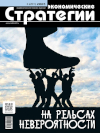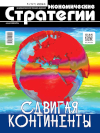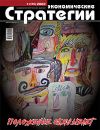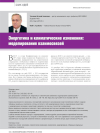New Model of the Russian Economy Management in the Context of Hybrid Risks and Threats
DOI: 10.33917/es-5.203.2025.6-19
The article examines the problems of transforming the system for economic management of the Russian Federation, which could make it function in conditions of hybrid risks and critical threats. A set of measures for transforming management systems is structured, a number of functional stages is identified. The article substantiates the need to develop both general management and specific technical measures aimed at ensuring that the controlled contour of the system of state and corporate management centers within the resource supply infrastructure should be prepared for these types of risks and threats. The author concludes that the most appropriate management tool is adoption of a digital “twin” model of an economic entity (organizational agent). Obtained results will enable authorities to address organizational challenges in the event of the “drop-out of control centers at various levels” in order to operate with industry (regional) control centers and to work in a dialogue mode with structures of the Russian Federation Government and infrastructure organizations.
References:
1. Ageev A.I., Loginov E.L. SShA, Kitay, Rossiya: konfliktnye uyazvimosti v usloviyakh tranzita k novoy geostrategicheskoy paradigm [USA, China, Russia: Conflict Vulnerabilities in the Context of Transition to a New Geostrategic Paradigm]. Ekonomicheskie strategii, 2024, vol. 26, no 6(198), pp. 16–25, DOI: https://doi.org/10.33917/es-6.198.2024.16-25
2. Ageev A.I., Grabchak E.P., Loginov E.L. Ustoychivost’ ekonomicheskoy supersistemy Rossii i Belorussii v usloviyakh yadernoy ataki [Stability of the Economic Supersystem of Russia and Belarus in the Event of a Nuclear Attack]. Mikroekonomika, 2025, no 2, pp. 5–13. DOI: 10.33917/mic-2.121.2025. 5-13.
3. Perevooruzhenie Evropy [Rearmament of Europe]. Livejournal, 2025, 7 marta, available at: https://spydell.livejournal.com/802118.html
4. Pavel Shpidel’: Raskhody federal’nogo byudzheta Rossii [Expenditures of the Federal Budget of Russia]. Dzen, 2024, 1 oktyabrya, available at: https://dzen.ru/a/ZvwlBD2apwzl2Nap
5. Byudzhet Rossii [Budget of Russia]. TADVISER, 2025, 22 yanvarya, available at: https://www.tadviser.ru/index.php/Статья:Бюджет_России
6. Kak izmenyatsya gosudarstvennye raskhody v Rossii v 2025? [How will Government Spending Change in Russia in 2025?]. Livejournal, 2024, 3 oktyabrya, available at: https://spydell.livejournal.com/789883.html
7. Baza dannykh voennykh raskhodov SIPRI [SIPRI Military Expenditure Database]. SIPRI. Stockholm International Peace Research Institute, available at: https://www.sipri.org/databases/milex
8. Dinamika oboronnykh raskhodov Rossii [Dynamics of Russia’s Defense Expenditures], available at: https://yandex.ru/images/
9. Ivanter V.V., Budanov I.A., Korovkin A.G., Sutyagin V.S. Prikladnoe prognozirovanie natsional’noy ekonomiki: Ucheb. posobie dlya vuzov. Gl. 29. Voenno-promyshlennyy kompleks [Applied Forecasting of the National Economy: Textbook for Universities. Chapter 29. Military-Industrial Complex]. Moscow, Ekonomist, 2007, 896 p. P. 711–736, available at: https://ecfor.ru/wp-content/uploads/books/uch/29.pdf



















